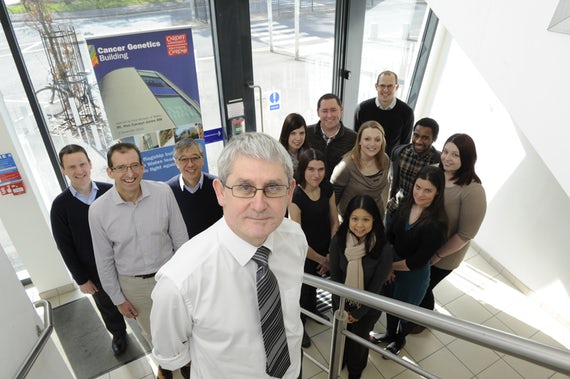We are in an era of fast evolving blood cancer treatment, novel non chemo therapies and new combinations offer the potential for individualised therapy choices based upon cryogenics and physiology.
Individualised treatment plans for patients require reliable predictive prognostic tests to rule out or direct a therapy to enable this to become a reality. , There are many genetic studies under way to direct therapy choice . This work by scientists at Cardiff University may enable doctors to determine if a patient has indolent or progressive CLL early, and according to evidence presented at ASH 2018 this same test can also reliably predict response to the Chemoimmunotherapy regimen FCR.
'Telomeres, the structures capping the ends of chromosomes, play a vital role in the maintenance of genomic integrity. Here, Christopher Fegan, MB, MD, FRCP, FRCPath, of Cardiff University, Cardiff, UK, introduces telomere length as a key determinant of telomere function, before presenting exciting data that suggests telomere length is a powerful predictor of outcome following fludarabine, cyclophosphamide and rituximab (FCR)-based treatment in chronic lymphocytic leukemia (CLL) patients. Speaking at the American Society of Hematology (ASH) 2018 Annual Meeting and Exposition in San Diego, CA, Prof. Fegan thinks telomere length could be used to inform the design of future clinical trials.'
WATCH THE VIDEO HERE vjhemonc.com/video/telomere...
